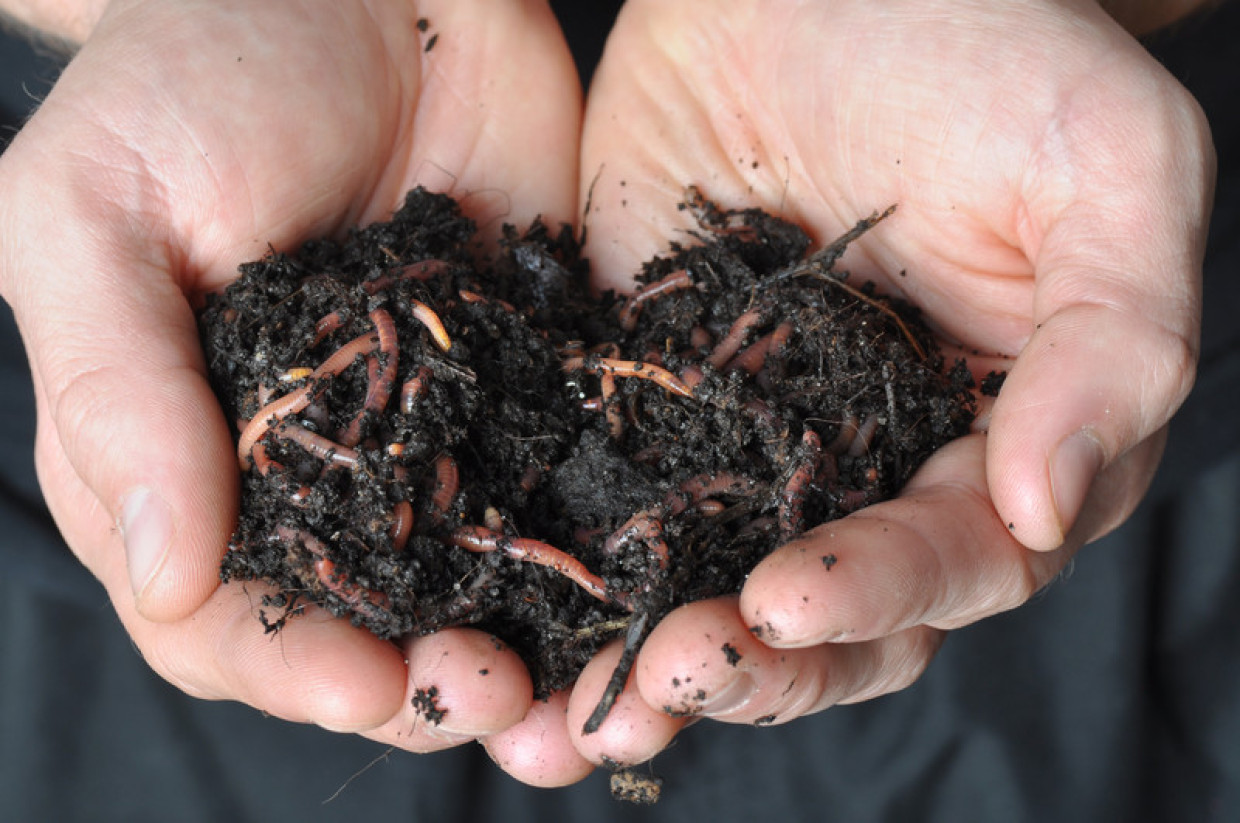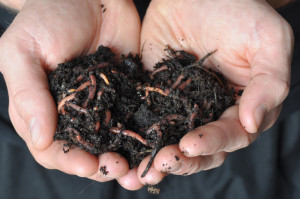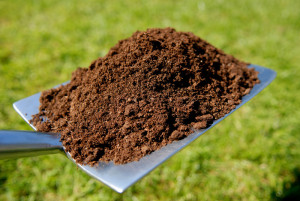Vermicomposting


Composting with red wiggler worms
Vermicomposting is the use of worms to compost kitchen scraps for use in your garden. Eisenia fetida also known as red wiggler worms are commonly used to break down organic food into compost. If given the right living conditions- air, warmth, moisture and food, red wigglers can consume about half their weight in food each day.
To keep your worms happy and healthy you can either buy a special composting bin or build one yourself. The goal is to keep them warm, moist and fed. Keep your bin wide and shallow, make sure there are plenty of air holes and proper ventilation. Keep your bin in a dark warm area and make sure to feed them. Worms do not migrate and prefer to stay in one place where there is food. Still if you are concerned about your worms escaping you can cover your air holes with mesh.
Your worm population will double every 90 days. Keep that in mind when planning the size of your bin. You can also sell some of your worms if you have too many.
Worm tea is the end result of steeping worm castings or vermicompost in water. Worm tea is known mostly for its ability to boost microbiological activity in soil by adding bacteria, fungi, actinomycetes, and protozoa to the soil. Great all natural fertilizer!
Keeping worms helps to reduce kitchen waste that might otherwise end up in your landfill. It allows for a quicker decomposing of food scraps that can then be used in your garden. Once established, keeping worms is relatively easy.
If you are looking for a way to reduce your waste and turn fresh kitchen scraps into usable compost, you may want to look at keeping these handy little creatures in your home.

Composting Soil
1 Comment
Glad to see your post on vermicomposting. I’ve been doing this in my basement in my “Worm-a-roo” for nearly 20 years. I saw this mentioned in Loudon Agriculture Commission’s email this morning.
Steve Lundahl
Canterbury